
Money Stories
12:18, 29-Jan-2019
Chongqing Airlines sees aircraft leasing as a way to ramp-up plane orders
By Wei Lynn Tang
03:39
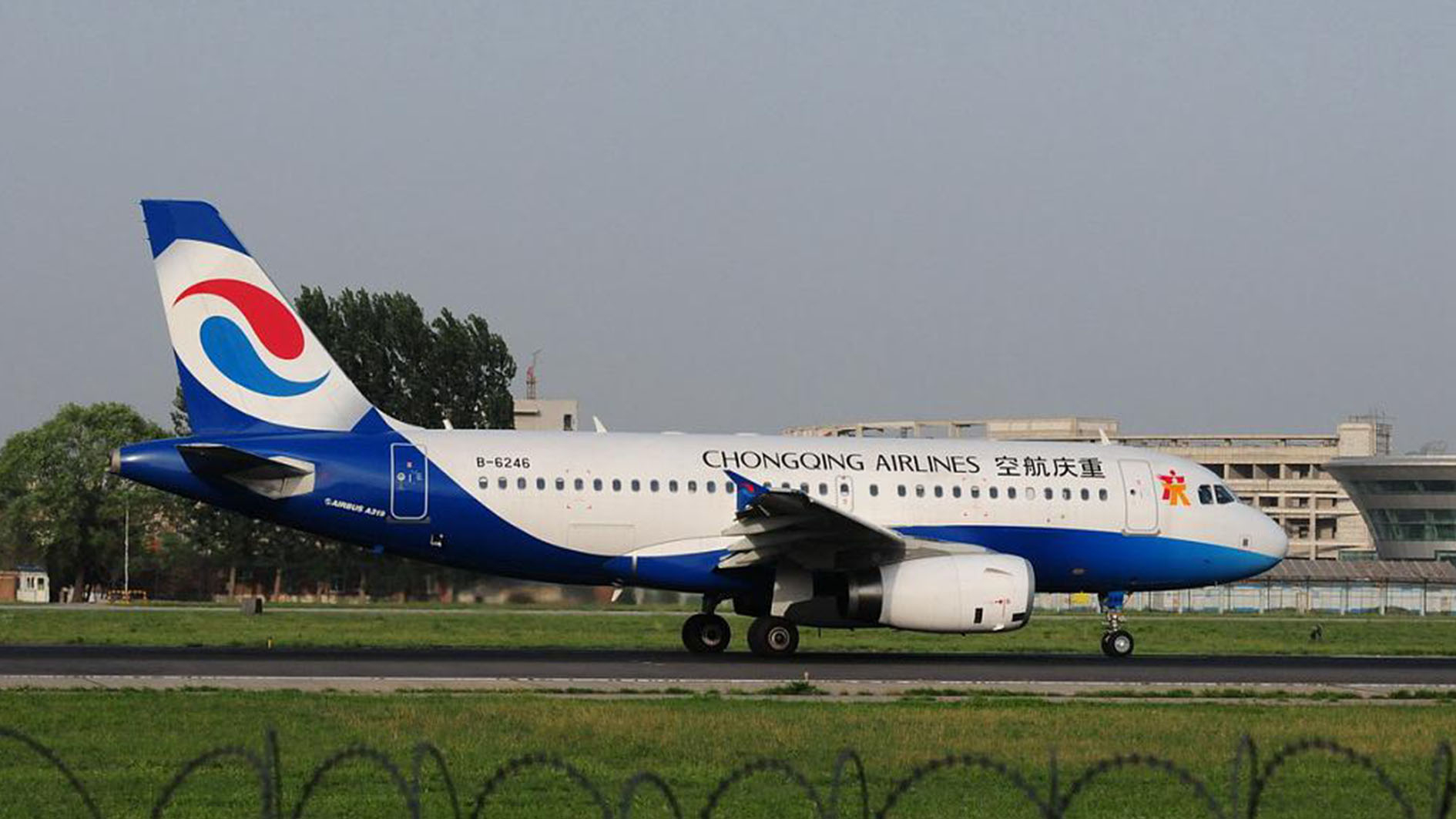
Airlines in the world today are increasingly opting to lease planes instead of acquiring them. According to PwC, approximately 32 percent of global air fleets are currently financed with leases, compared to less than one percent 40 years ago.
In inland China and the country's western region, however, leasing is still relatively a new concept.
Thanks to the introduction of a bonded leasing model at the Chongqing Liangjiang New Area, Chongqing Airlines has, for the first time, leased planes on its own.
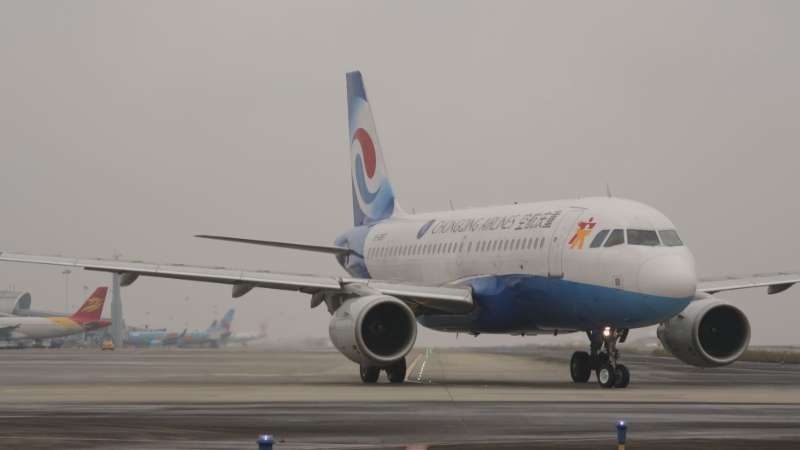
Chongqing Airlines received delivery of its first A320neo via the bonded leasing method in September 2018. / CGTN Photo
Chongqing Airlines received delivery of its first A320neo via the bonded leasing method in September 2018. / CGTN Photo
Peng Juzhen, Chairman of Chongqing Airlines, said the Chongqing Pilot Free Trade Zone has provided the company with an impetus to consider leasing planes as a means to finance aircraft.
“In the medium to long term, we may need up to 200 aircraft – from our current fleet of over 20 – if we wish to achieve our goal of being the flagship airline at Chongqing Jiangbei International airport. Therefore, to import planes via SPV is an indispensable and important channel,” Peng told CGTN.
“Chongqing wants to build an inland open highland and economy, but it is not near the sea or border, so it depends on the blue sky to revitalize the economy,” Peng further explained.
The ramp-up in demand for aircraft is also driven by the shift in China's economic development from the country's eastern regions to the west.
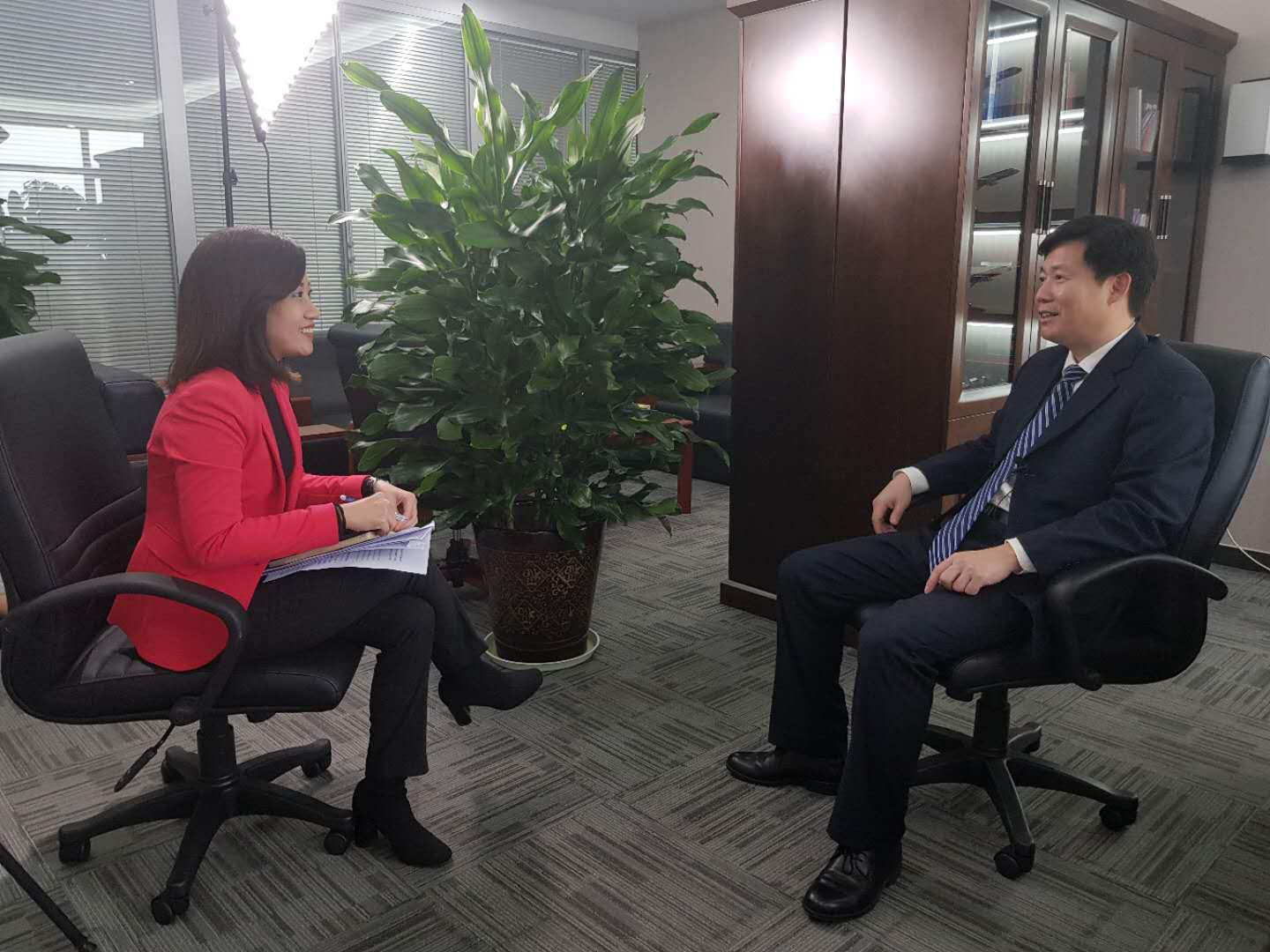
Peng Juzhen, Chairman of Chongqing Airlines, speaks with CGTN reporter. / CGTN Photo
Peng Juzhen, Chairman of Chongqing Airlines, speaks with CGTN reporter. / CGTN Photo
In January 2018, Chongqing Airlines signed an agreement to lease seven A320neo planes from BOC Aviation – five which have been delivered via the bonded operating leasing method.
BOC Aviation, whose majority shareholder is Bank of China, is registered and headquartered in Singapore.
“We don't often see bonded leasing in civil aviation in southwestern China. This marks an important window for our opening to the outside world,” Peng said.
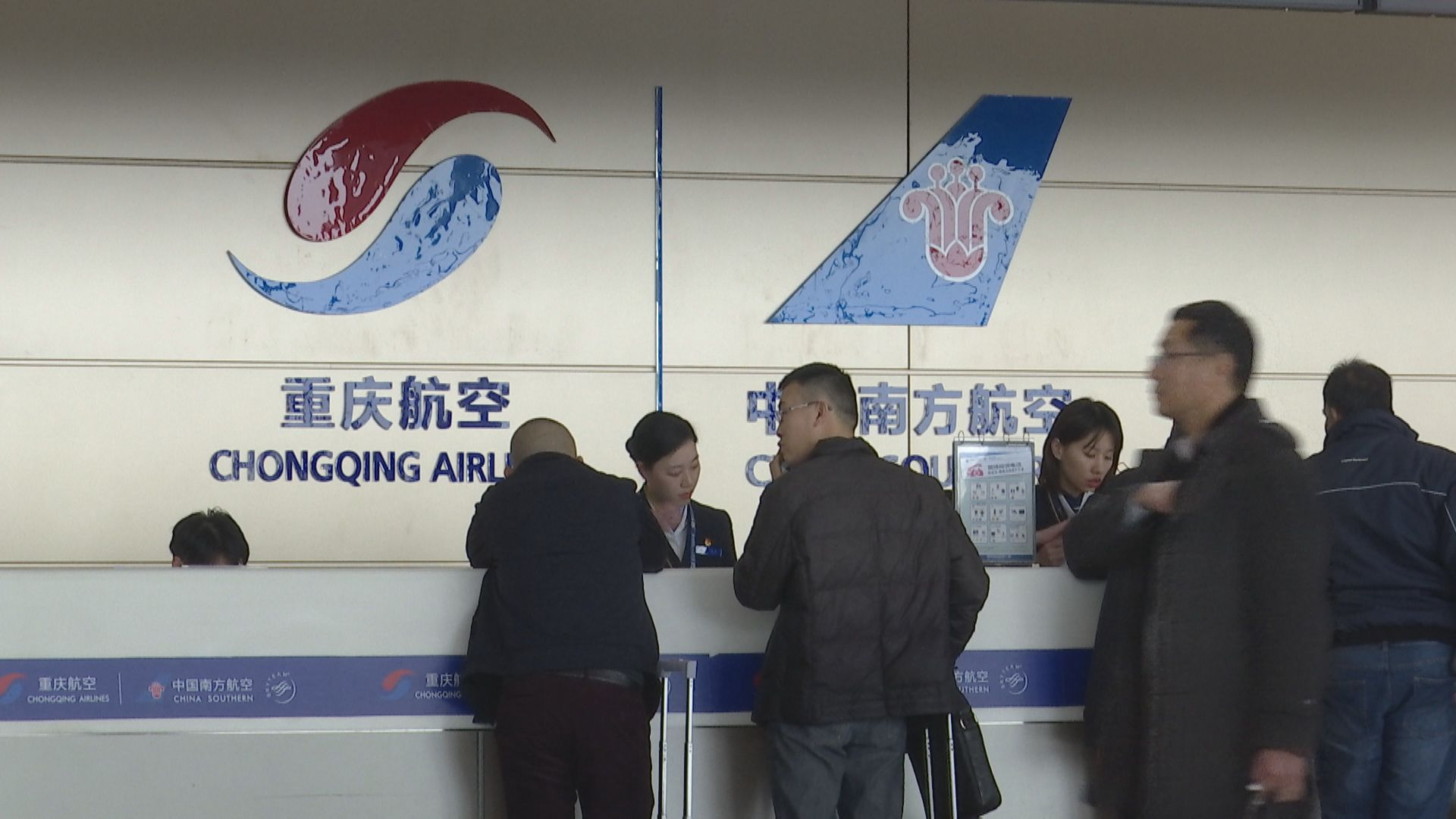
China Southern Airlines owns a 60 percent stake in Chongqing Airlines. /CGTN Photo
China Southern Airlines owns a 60 percent stake in Chongqing Airlines. /CGTN Photo
Zhang Kui, director at the institutional innovation department at Chongqing's Commerce Commission said Chongqing's bonded aircraft platform can help spur the aviation, finance and logistics industries.
This can drive the opening-up of the country's western region further, he noted.
One of the advantages of this policy, according to him, is that customs allow the leased aircraft to enter the "bonded" area, where supervision can be done from elsewhere.
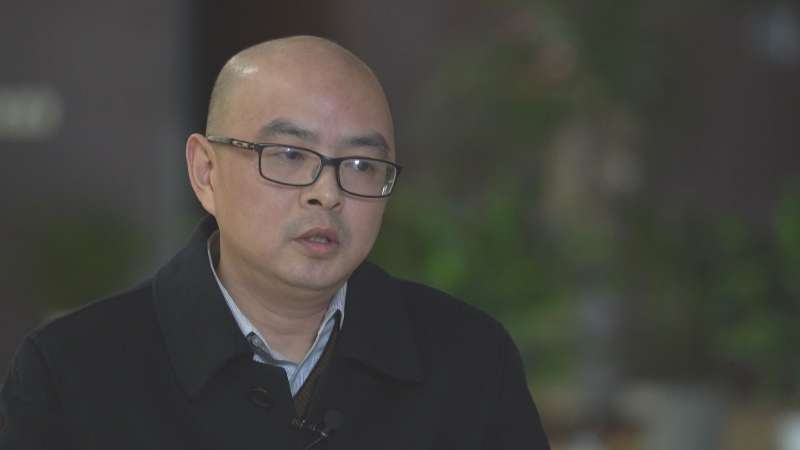
Zhang Kui, director at the institutional innovation department at Chongqing's Commerce Commission /CGTN Photo
Zhang Kui, director at the institutional innovation department at Chongqing's Commerce Commission /CGTN Photo
“Secondly, bonded leasing companies can collect leasing fees in a foreign currency. Thirdly, we have a one-stop service in customs registration and tax affairs, to ensure the landing of the aircraft as soon as possible,” Zhang pointed.
“But the biggest policy advantage among all is the airline can pay the leasing fees and import-related taxes by stages, thus reducing the financial pressure of airlines.”
Chongqing Airlines estimates it can save about 10 percent from the cost of each aircraft during the entire 12-year leasing period.
Chongqing is the only municipality directly under the central government in the central and western region and is part of the country's third batch of free trade pilot zones.
(Video filmed by Li Yang, Luo Caiwen)

SITEMAP
Copyright © 2018 CGTN. Beijing ICP prepared NO.16065310-3
Copyright © 2018 CGTN. Beijing ICP prepared NO.16065310-3